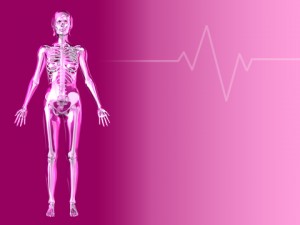 We all know that sleep is essential with between seven hours and nine hours widely recognised as “acceptable”. Everybody is different so what works for one person may not work for another but the general benefits and concept of sleep are the same. If you suffer from phobias and anxiety, sleep is even more essential. But have you ever asked yourself why?
We all know that sleep is essential with between seven hours and nine hours widely recognised as “acceptable”. Everybody is different so what works for one person may not work for another but the general benefits and concept of sleep are the same. If you suffer from phobias and anxiety, sleep is even more essential. But have you ever asked yourself why?
The benefits of sleep
Research shows that when you are asleep your brain cells are effectively cleansing your brain of toxic proteins. These proteins are a by-product of neural activity when you are awake and will impact your ability to think unless cleansed – a fuzzy head. So, if you are sleep deprived then your body has less time to remove these toxic proteins and the build-up just gets worse and worse. The knock-on effects can include:-
• Increased stress levels
• Lack of focus
• Inability to work
• Fuzzy head feeling
For those who suffer from anxiety and phobias this can cause huge problems.
High anxiety
If you suffer from phobias and anxiety you will find it useful to keep a diary of dates and occasions when you feel more anxious and when you phobias were more prevalent. It would also be useful to keep a note of your sleeping patterns and how much sleep you get on a nightly basis. In reality it won’t be too long before you can match up times when you had disturbed/low levels of sleep and your anxiety and phobias were extremely strong. So why is there such a strong link between sleeping patterns and anxiety/phobias?
Think of it this way, when we have enjoyed a solid eight hours sleep with minimal interruptions, we all feel much better. Refreshed and ready for the day ahead. However, if you have had disrupted sleep, perhaps you have only been able to grab a few hours, your body has not had time to relax. As a consequence, when you wake up in the morning your anxiety levels will already be higher than their natural balance. These are the days when relatively small issues and challenges have a huge impact on your mental health. Problems and tasks which would normally carry out without a seconds thought suddenly become more challenging – adding to your frustration. You think things through more, your ability to focus is reduced and various side issues (often not important) suddenly become real problems.
Controlling your emotions
As we touched on above, we all have a natural anxiety level which after a good night sleep should be relatively low. The trials and tribulations of the following day may well increase your anxiety level but if you are refreshed you can often take this in your stride. Problems occur when your anxiety levels are abnormally high as soon as you wake up. You feel nervous, you feel tense and you don’t have the same relaxed outlook for the day ahead. Your anxiety is feeding anxiety and creating a vicious circle.
These are the moments when you’re phobias will often come to the fore. You will start to notice small twitches and small issues in your mind which don’t normally cause a problem. As soon as you recognise your phobia is coming, your anxiety levels naturally increase as hormones are released to fight it. Unfortunately, as your anxiety levels are already abnormally high due to a lack of sleep/restless night, this added injection of hormones is far too much stimulus for your body. You are unable to control your emotions now; anxiety is rampaging through your body, dragging behind it phobias and other issues which often remain buried. In many ways this describes how we can have “good days” and “bad days” which are often dictated by the way we start the day.
Sleeping patterns
There is a general misconception that if you are able to get eight hours sleep a day, through the day and night, this will be enough. Many people even think that an early night will see them wake up refreshed and ready for the day ahead – this is wrong. Your body needs sleeping patterns, predictability and an appreciation that for example between 11 o’clock and 7 o’clock you will be relaxed. This gives your body time to wind down, removing the toxic proteins which impact brain activity and allowing you to chill. Have you ever wondered why those who have regular sleeping patterns will wake up at the same time each morning without an alarm clock?
Summary
There are huge health benefits from regular sleeping patterns but there are also enormous benefits to your mental health. Starting the day at a natural level of anxiety creates a huge buffer between your natural state and that moment when you’re phobias and fears begin to kick in. In what is best described as a vicious circle, high anxiety levels in the morning will make you naturally more anxious going forward. You will have mental challenges, physical challenges and perhaps a lot going on which you struggle to focus on. This will make you more frustrated, increasing your anxiety and making you more susceptible to phobias.
For too long we have underestimated the power of sleep. Those people working into the early hours of the morning and living on just a few hours of sleep are fooling themselves. Nothing can replace sleep, a time when your body relaxes and repairs itself, getting you ready for the day ahead. Starting with high anxiety levels is a recipe for disaster.






